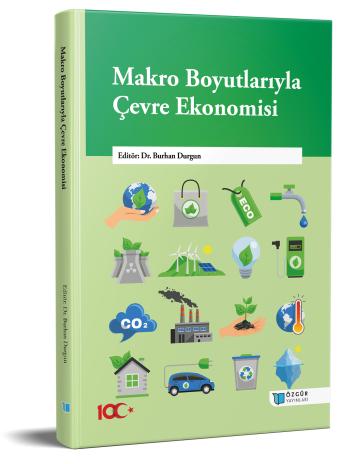
G7 Ülkelerinde Karbon Emisyonu ile Ekonomik Büyüme İlişkisinin İncelenmesi
Şu kitabın bölümü:
Durgun,
B.
(ed.)
2023.
Makro Boyutlarıyla Çevre Ekonomisi.
Özet
Küresel problemlerin başında gelen küresel ısınma ve iklim felaketlerinin karbon emisyon hacmini artırması ve bunun da ekonomik büyüme ile herhangi bir ilişkisinin olup olmadığı literatürde tartışılan konular arasındadır. Bu çalışmanın amacı, 1991 ile 2021 yılları arası gelişmiş 7 ülke (G7) için karbon emisyonu ile ekonomik büyüme arasındaki uzun dönem ilişkisini incelemektir. Değişkenler arasındaki uzun dönem ilişkisi Durbin-Hausman panel eşbütünleşme testi ile belirlenmiştir. Eşbütünleşme testi doğrultusunda, kişi başı karbon emisyon miktarı ile kişi başı GSYH değişkenleri arasında eşbütünleşik ilişkinin varlığı saptanmıştır. Daha sonra uzun dönem katsayı tahmini için tam düzeltilmiş en küçük kareler (FMOLS) ve dinamik en küçük kareler (DOLS) tahmincileri kullanılmış ve elde edilen bulgulara göre değişkenler arasındaki ilişkinin negatif yönlü olduğu tespit edilmiştir. Bunun anlamı, G7 ülkelerinde ekonomik büyümenin karbon emisyon miktarını azalttığıdır. Bu sonuçlardan G7 ülkelerinde ekonomik büyümenin çevresel politikaların belirlenmesine engel olmayacağı anlaşılmaktadır. Ancak geleneksel ekonomik büyümenin yerine daha temiz ve yenilenebilir enerji kaynaklarına dayalı bir ekonomik model oluşturmanın önemine vurgu yapmak gerekir.

